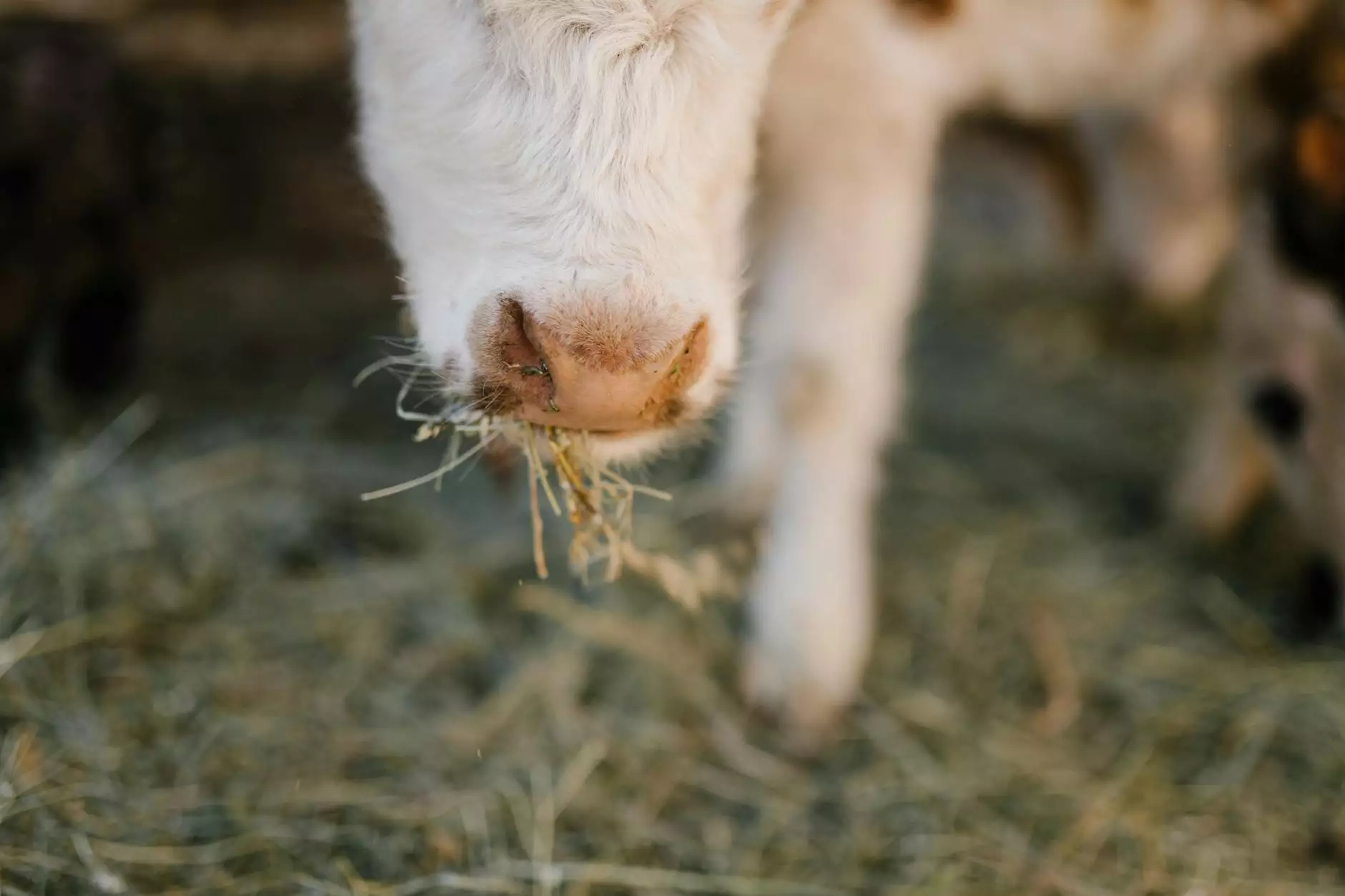The Ultimate Guide to Organic Lamb Meat

In recent years, the demand for organic lamb meat has surged as consumers become increasingly health-conscious and environmentally aware. This guide delves into the world of organic lamb meat, exploring its benefits, culinary uses, and why it is becoming a staple in many households.
What is Organic Lamb Meat?
Organic lamb meat refers to lamb that is raised in a natural environment, free from synthetic additives, antibiotics, or growth hormones. Animals are nurtured on organic pastures, ensuring they can graze freely and consume a natural diet. This method not only enhances the quality of the meat but also supports sustainable farming practices.
The Benefits of Choosing Organic Lamb Meat
- Healthier Choice: Organic lamb is free from harmful chemicals and hormones found in conventionally raised meat. It is often richer in nutrients like omega-3 fatty acids and antioxidants.
- Better Taste: The flavor profile of organic lamb are typically richer and more robust due to the natural diet and stress-free environment in which the animals are raised.
- Sustainability: Choosing organic lamb promotes sustainable farming practices, protecting soil health and biodiversity. This choice supports farmers who prioritize environmental stewardship.
- Animal Welfare: Organic farming standards prioritize animal welfare, ensuring lambs are raised in humane conditions with adequate space and care.
Why Organic Lamb Meat is a Superior Choice
When compared to conventional lamb meat, organic options offer numerous advantages. Notably, the nutritional content tends to be elevated in organic lamb due to the animals' natural diets. Research has shown that organic lamb meat often contains higher levels of beneficial fatty acids.
Nutritional Comparison: Organic vs. Conventional Lamb
Here is a brief comparison of the nutritional benefits:
NutrientOrganic Lamb (100g)Conventional Lamb (100g)Protein25g24gOmega-3 Fatty Acids0.2g0.1gIron2.2mg2.0mgZinc4.0mg3.8mgCulinary Uses of Organic Lamb Meat
Organic lamb meat's versatility makes it a favorite among chefs and home cooks alike. It can be prepared in numerous ways, offering a range of flavors and textures:
Popular Cooking Methods
- Grilling: Organic lamb chops are perfect for grilling, imparting a smoky flavor that enhances their natural taste.
- Roasting: A whole organic lamb leg can be roasted to perfection, allowing the flavors to meld beautifully.
- Slow Cooking: Stews and curries benefit from slow-cooked organic lamb, which becomes tender and flavorful over time.
- Skewering: Lamb kebabs made from organic meat can be marinated and grilled for a delicious and easy meal.
Delicious Recipes Featuring Organic Lamb Meat
Here are some mouthwatering recipes that highlight the rich flavor of organic lamb:
1. Herb-Crusted Organic Lamb Chops
These lamb chops are marinated in a blend of fresh herbs and olive oil before being grilled to perfection. The herbs infuse the meat with a delightful taste that pairs well with seasonal vegetables.
2. Slow-Roasted Organic Lamb Shoulder
Seasoned with garlic, rosemary, and thyme, this succulent roast is the perfect centerpiece for any gathering. Serve it with roasted root vegetables for a complete meal.
3. Organic Lamb Curry
This hearty dish combines organic lamb with a mix of spices and coconut milk, creating a warming and comforting meal that's perfect for colder months.
Buying Organic Lamb Meat
When purchasing organic lamb meat, consider the following tips to ensure you are getting quality products:
- Choose Certified Organic: Look for labels that indicate the meat is certified organic to confirm it meets established standards.
- Know Your Source: Familiarize yourself with local farms or retailers that provide organic products. Shopping locally supports sustainable practices.
- Check for Freshness: Ensure the lamb meat is fresh, with a vibrant color and no unpleasant odors.
- Ask Questions: Don’t hesitate to ask butchers or vendors about the sourcing and raising conditions of the lamb.
Storing Organic Lamb Meat
Proper storage is key to maintaining the quality of organic lamb meat:
Refrigeration Guidelines
Organic lamb should be stored in the refrigerator at a temperature below 40°F (4°C). Consume fresh lamb within three to five days to ensure optimal freshness.
Freezing Organic Lamb
If you won’t be using the lamb within a few days, consider freezing it. Wrap the meat tightly in plastic wrap or butcher paper, then place it in an airtight container or freezer bag. Properly stored, organic lamb can last for several months in the freezer.
The Environmental Impact of Choosing Organic Lamb Meat
Choosing organic lamb meat not only benefits your health but also has a positive impact on the environment. Organic farming practices tend to promote soil health, reduce pollution, and encourage biodiversity. Here are some key points:
- Soil Health: Organic methods improve soil structure, increasing its ability to retain water and nutrients.
- Water Conservation: Organic farms often utilize methods that require less water than conventional farming.
- Reduced Chemical Use: By avoiding synthetic pesticides and fertilizers, organic farming helps protect local water sources and ecosystems.
Conclusion
In conclusion, incorporating organic lamb meat into your diet is a decision that benefits both your health and the environment. With its superior nutritional profile, rich flavor, and diverse culinary possibilities, organic lamb is an ideal choice for anyone looking to enhance their meals. By purchasing organic lamb, you support sustainable farming and promote humane treatment of animals. Join the movement toward healthier eating—embrace the deliciousness of organic lamb today!
Explore More at Frimsa-ar.com
For further information on sourcing high-quality organic lamb meat, visit Frimsa-ar.com. Explore our selection of imported foods, including premium organic lamb, and discover why we are your trusted choice for all your meat shop needs!









